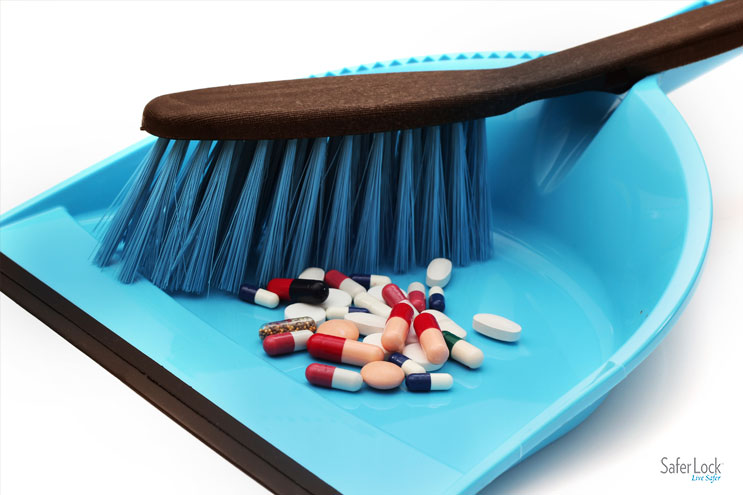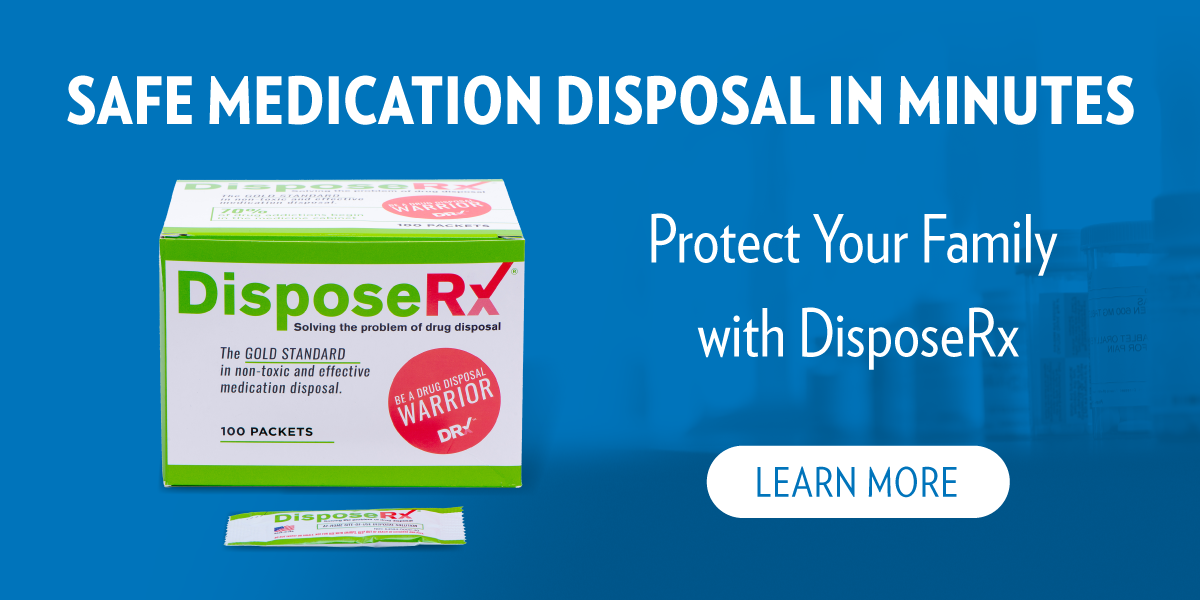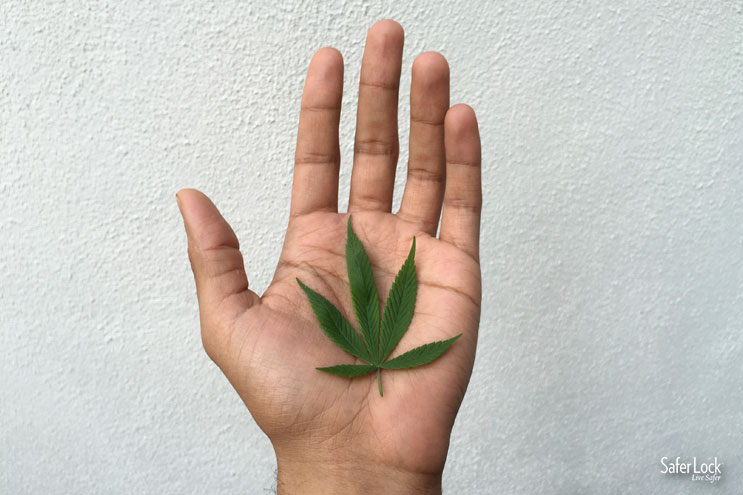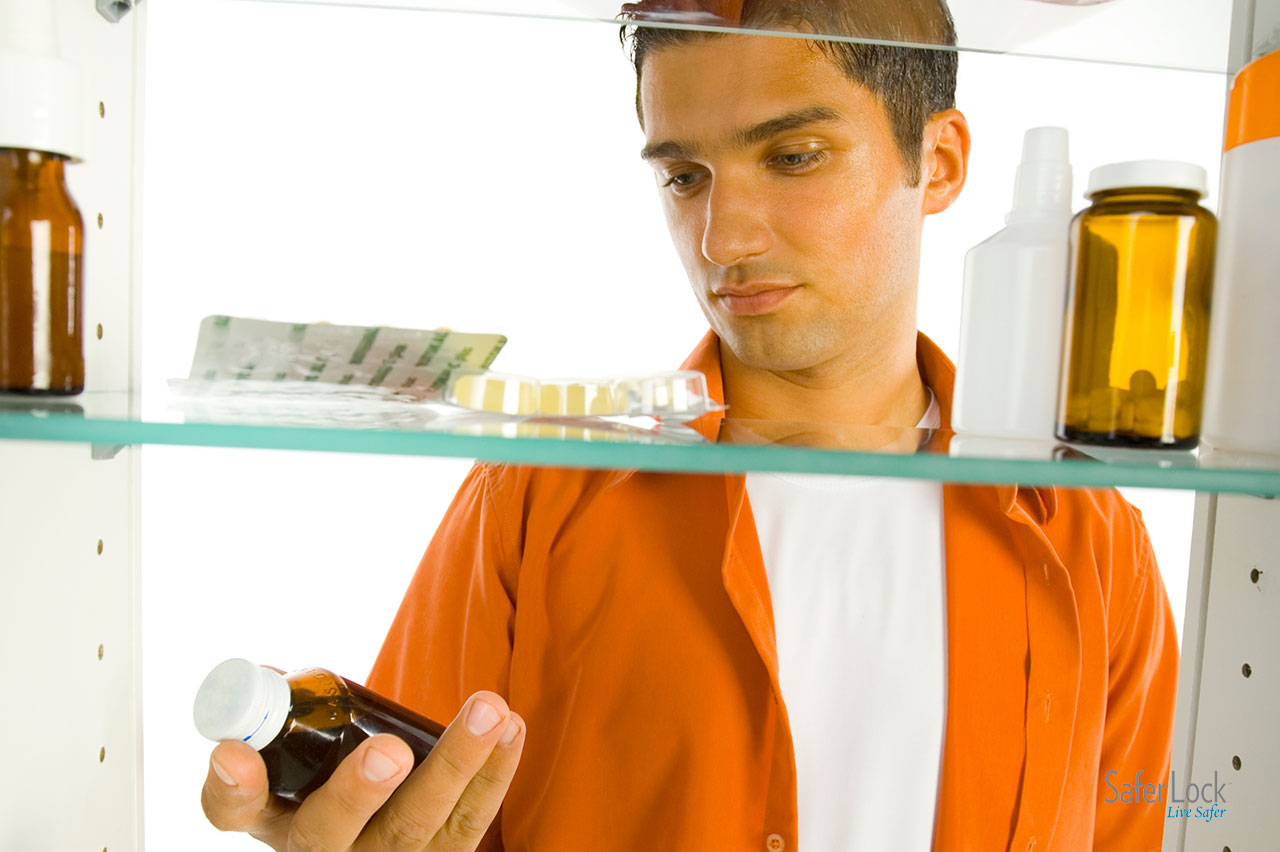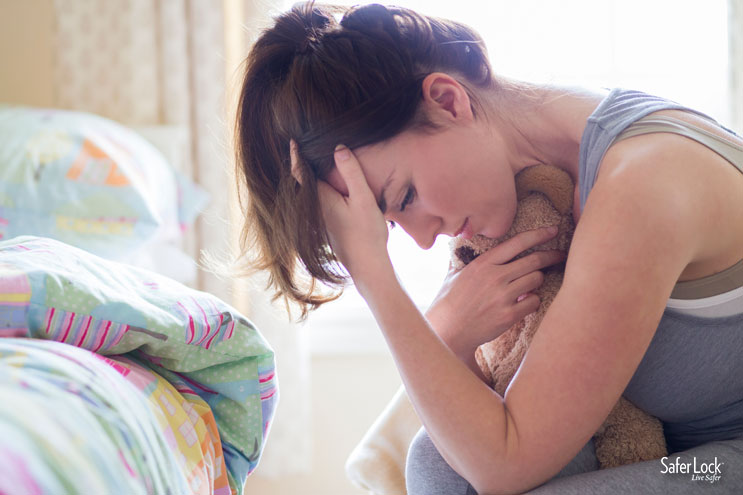How organized is your medicine cabinet? If your is a jumble of prescription and over-the-counter medicines that are half-used, unneeded, or even expired, then it’s time to start the year off right with a medicine disposal and clean-up project.
The benefits of disposing of old, unneeded, or expired medicines go far beyond that of simply organizing one area of your home.
Expired medication may be less effective, leading to overuse and potential overdose. The chemical composition of expired medications can even change, making even a seemingly harmless OTC drug very risky to take. “Once the expiration date has passed, there is no guarantee that a medication will be safe and effective,” warns FDA pharmacist Lisa Bernstein.
By eliminating old and expired medications from your home, you are protecting yourself and your family from potential health risks.
Unneeded and forgotten prescription medications also pose a different, and potentially more dangerous, threat to your family.
Prescription drug abuse has reached epidemic levels in the U.S., and teen rx drug use is on the rise.
Would you notice if one or two pills went missing from a bottle of painkillers that you hadn’t touched since your surgery last summer?
Most parents don’t. And casual use of these highly addictive prescription painkillers can take a teen quickly down the path from experimentation to drug dependence, because the teen brain is primed for addiction.
Disposing of prescription medications that you don’t need anymore helps assure that your medicine cabinet won’t be an unwitting drug dealer to the teens who come and go through your home.
How to Dispose of Medicines in Your Home
Now you know why it’s time to dispose of unwanted drugs in the house, but do you know how? There’s a right and a wrong way to get rid of your old med.
Here’s what you need to know:
While it may be tempting to just flush all of your unused meds down the toilet, there is a real environmental impact to consider.
According to Dispose My Meds, more than 100 different pharmaceuticals have been detected in bodies of water throughout the world, including lakes, rivers, and even the drinking water of millions of Americans.
Take the time to dispose of medicines the right way, and you can help be a part of the solution to multiple issues.
Medicine Take-Back Events
The U.S. Drug Enforcement Administration (DEA) hosts National Prescription Drug Take-Back events in communities nationwide. Many local law enforcement agencies also host Take-Back programs of their own, as well.
But what if you just missed a Take-Back event, or it will be months before one comes to a town near you?
Medicine Drop Off Locations
Many communities have public medicine disposal locations where you can drop off unwanted or expired meds. These locations are typically at a local police station, health care provider, or pharmacy, where you can easily drop off your unwanted meds into a secured lock box.
Lawmakers such as Sacramento Congressman Ami Bera are fighting to get more 24-hour drug disposal kiosksavailable to help curb the epidemic of prescription drug abuse. You can find a drop off location near you with the DEA public disposal location tool, or the Dispose My Meds pharmacy locator tool.
Trash It
If a drug drop-off or take-back program isn’t available to you, is it ok to throw away old medications? The answer is yes, but there are steps you should take before doing so.
The U.S. Food and Drug Administration (FDA) offers the following instructions if you need to throw away your meds:
- Mix medicines in with an unpalatable substance such as kitty litter or sawdust. Do not break open or crush tablets or capsules.
- Place the mixture in a sealed plastic bag.
- Throw the bag into your trash.
- Remove any personal identifying information from the drug container, including your name and the type of prescription before disposing of the container.
Both prescription and over-the-counter medications have the potential for abuse, and can be a potential health risk if expired. By cleaning out old and unneeded medications from your home, and disposing of them the right way, you can help protect your family from the dangers of each.
